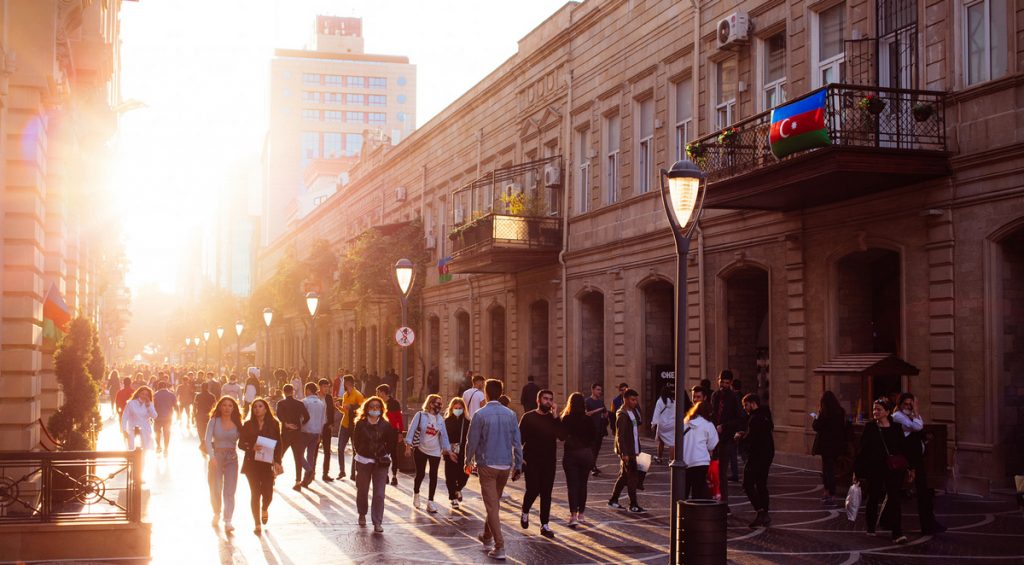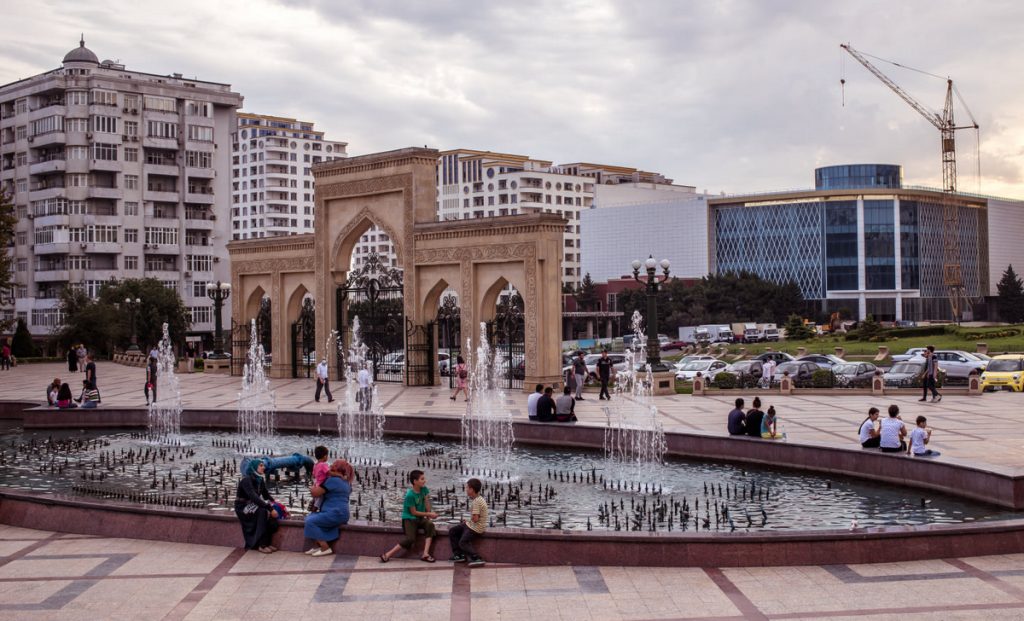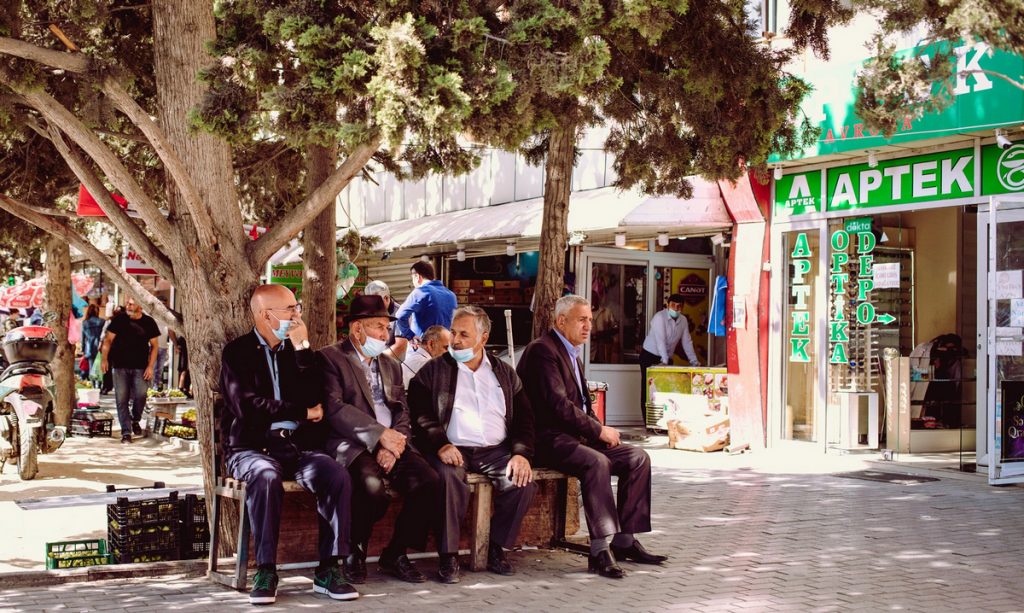Why are Azerbaijanis reluctant to get vaccinated against Covid-19?
Vaccination in Azerbaijan is already in full swing – from May 10, all citizens of the country over 18 years old, as well as foreigners with a residence permit, can get vaccinated against COVID-19. As per the official data as of June 4, a total of 900,000 people (10% of the country’s population) have been fully vaccinated and 600,000 have only received the first shot of vaccine. Many residents of Azerbaijan are either very reluctant to get vaccinated or are not going to do it at all unless they absolutely have to and here is why.
What vaccines are used in Azerbaijan
The anti-coronavirus vaccination programme in Azerbaijan began in January this year, and initially the CoronaVac vaccine from the Chinese company Sinovac was being used. Then the country received the AstraZeneca ( which is now used is now used to vaccinate people over 60 years old) and Russian Sputnik V vaccines and from June 10, it will also be possible to get vaccinated with the German-American Pfizer / BioNTech vaccine.
Why many Azerbaijanis are reluctant to get vaccinated
To begin with, many of those who are in no hurry to get vaccinated simply do not trust the new vaccine and wait for everyone else will get vaccinated first, and after seeing that they did not die, they would get vaccinated too. Anti-vaccination tendencies of recent years are playing an important role in this process as people have become afraid even of the measles vaccination which has been used decades, and they are even more wary of the unknown vaccine against an equally unknown disease.
As for the myths surrounding the vaccination process, they can be divided into two categories:
- ‘foreign’ myths spread all over the world by a large number of groups, communities, and videos in all languages campaigning against vaccination on the Internet;
- ‘local’ myths, invented within the country.

Foreign myths
- Vaccination is actually chipping. Under the guise of a vaccine, people will be implanted with some kind of mysterious chip which will read their minds, control their actions and perform all sorts of other science fiction functions. Who wants it? Global government. We hope that there is no need to seriously consider and refute this conspiracy theory.
- Instead of a vaccine, people are injected with poison to exterminate everyone. This horror story, again, features a world government and abstract rich people who want to destroy all the poor, thus reducing the number of people on earth. It is not clear, however, why the rich should exterminate cheap labor. With this, too, everything seems self-explanatory.
- There is no coronavirus. Yes, even after a year, some simply do not believe in the very existence of Covid-19. They do not want to be vaccinated against a non-existent virus. In Azerbaijan, this belief is widespread but mainly in the provinces.
- The vaccine leads to infertility of women. This myth is based on the version put forward by some anti-vaccines that antibodies that are produced in the human body after vaccination suppress the synticin-1 protein, which is necessary for the formation of the placenta, which, in turn, leads to infertility. However, doctors (for example, the British Fertility Society) say that this version is far-fetched, has no scientific basis and “there is no evidence and theoretical basis for the assertion that any of the vaccines against Covid-19 affect the fertility of women or men”.
- Instead of a vaccine, people are injected with vitamin C or water. This theory is supported by the fact that many do not experience any sensations at all after the first dose.However, if that was truly the case, sensations would have been very much present. Vitamin C injections, for example, are very painful and again, even with the most sceptical attitude towards those in power, it is difficult to imagine that any government would put on a show of such a scale in order to prolong an unfavourable pandemic.
‘Foreign’ myths penetrate Azerbaijani society via the Russian-speaking and English-speaking Internet, and then they are transmitted either by word of mouth or through social media.

‘Local’ myths
- We were given a cheap and low-quality Chinese vaccine. The stereotype that has arisen due to the abundance of cheap Made in China products leads many to believe that nothing manufactured in China could be any good. Resident of Azerbaijan also distrust their government and believe that it will not miss the opportunity to save money at the expense of its citizens. But in the case of CoronaVac, things are not so simple. Yes, its effectiveness was initially doubted – in Brazil it was estimated at 50% only, however, subsequent research https://www.bloomberg.com/news/articles/2021-05-11/china-s-sinovac-shot-found-highly-effective-in-real-world-study rehabilitated it and the vaccine was approved by the World Health Organization. Moreover, it is far from the cheapest, quite the opposite. One dose of CoronaVac costs about $ 30. For comparison: Pfizer costs about $ 20 per dose, Sputnik – $ 10, and one dose of AstraZeneca generally costs about $ 4. Only the American Moderna is more expensive than CoronaVac, worth up to $ 37 per dose.
This myth has a twin antipode – “ better to get vaccinated with Sinovac before the ‘bad vaccines’ arrive”.
Most of the local myths are transmitted either “offline” or in local segments of social media. Another popular form of disseminating disinformation about vaccines is voice messages on WhatsApp with a warning from an “anonymous insider” that people forward to each other.
- In government clinics, people are given only half the dose. This myth has a specific source. At the end of March, the editor of one of the local media outlets wrote about this on their Facebook page. Aynur Elgunesh stated that she learned from anonymous sources that one ampoule is being used to vaccinate two people, while the saved doses are sold to private clinics. This rumor received a wide response, and the association for the management of territorial medical units even commented on it, saying that they had not received any official complaints about this, and there is enough vaccines for everyone in the country.
Although frauds do occur in the Azerbaijani healthcare system, they cannot be completely meaningless. At the time when this status was published, only people over 40 were vaccinated, and, according to official information, there were much more vaccines in the country than those who had registered to get jabbed, hence why, there was no reason to save it. It is also difficult to imagine a person who would prefer to pay for vaccination in a private clinic (private clinics do not provide vaccinations), instead of doing it for free in a public one. But one way or another, there was still one sensible piece of advice in this “warning of anonymous doctors” – make sure that the ampoule with the vaccine is opened in front of you. Just in case.
- A neighbor of my friend’s mother-in-law became ill immediately after the vaccination. My other colleague had a fever and his whole body ached. After vaccination, people become especially susceptible to the virus, therefore, between the first and second doses, one should not leave the house. This is a separate category of myths arising from misinterpretation of medical facts and causation. They are transmitted almost exclusively by word of mouth.
Yes, a colleague could have had a fever after vaccination, but this is a normal reaction of the body, indicating that the vaccine is working ( vaccine “mimics” the disease in order to provoke the body to develop immunity) and in a day or two, these symptoms disappear. It is also quite possible to get sick after vaccination – it does not guarantee complete immunity, but it also does not mean that the infection can be caused by vaccination or that there is no point in getting vaccinated at all.

Initially, vaccination in Azerbaijan progressed slowly, and by the time Pfizer was brought to the country, the authorities decided to somehow push the process. For this, electronic certificates of vaccination and immunity certificates for those who have been ill were introduced, and will now serve as a pass to gyms. It was announced that then certificates can be used to enter other public places too.
Vaccination remains voluntary, but the Cabinet of Ministers has warned that from July 1, at least 80% of labor and service workers must obtain the vaccination certificate, and the vaccination process has, indeed, speed up.


















